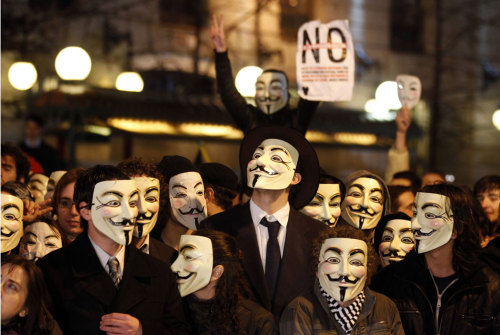The law has been vigorously opposed in Spain, with bloggers, journalists and tech professionals staging a series of protests, including writing an anti-Sinde manifesto. The president of the Spanish Film Academy even resigned over the issue. Overseas, open internet activists have voiced concerns about the breadth and implications of the law.
Personally, I’m for open rights. The internet might be the closest thing we have to utopia. Quite simply, it is a free market of ideas. Once the government starts playing a coercive role, it will have a chilling effect on the online community. Ultimately, it is the internet users that lose out. Besides, one of the sites where I get my fix of classic basketball games is in Spanish; so that’s at least one thing I’ll lose out on.
Source: BBC News
Francis Paolo Tiopianco, Entry #3


No comments:
Post a Comment